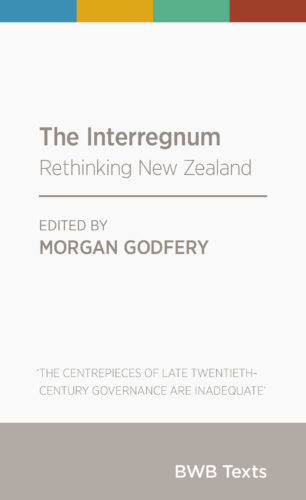
This reading carries on from here.
The third essay in The Interregnum is “Reimagining the Economy” by Wilbur Townsend. I must admit that reading a book that opens with several Marx and Gramsci quotes which then goes into radical economic intervention makes me think of the millions of people who starved to death in the 20th century. Despite that, I continue in the belief that the left must have learned to moderate its radicalism by now.
Promisingly, this essay opens by sticking to sober facts. Townsend points out that the economy has grown by 48% since 1990, but the average wage is only 22% higher, on account of that the dividends of this greater economic growth is not being distributed. Moreover, wages in finance and insurance have grown 62% while wages in hospitality have grown 3%.
“There is money being earned in this country but, increasingly, it isn’t being earned by us.” This is the central lament of this essay, and it’s a fair one. After all, neoliberalism and free trade are sold to the people as innovations that will increase the logistical efficiency of getting cheap goods and services to market. But it’s not worth saving $500 on a television if you also lose $15,000 in wages.
In an odd coincidence, the essay contains a reference to Luddites, in the context of people who opposed technological advancement on the basis that it destroyed labour opportunity, and who question the liberating potential of these advancements. Jonty Gillespie and the machine cultists in The Verity Key refer to people as Luddites if they’re not interested in going deep enough into a virtual environment to forget the outside world.
Despite representing working-class sentiments more faithfully than Morgan Godfery managed in his opening effort, the middle-class social justice warrior influence does shine through at some points in Townsend’s essay, such as when he laments that “Misogynistic workplaces” and “sexist bosses” are responsible for the dearth of female truckies and wharfies. One suspects that some of Townsend’s acquaintances would happily have a proportion of men castrated if such was considered necessary to “solve the gender gap”.
Like many in the left of today, biological explanations for gender differences are avoided with superstitious fervour.
The youthful idealism also shines through when he argues for a universal basic income.
No matter how good the arguments for a universal basic income are, we have never had one before and there are good reasons for this. Townsend possesses an eerie certitude about the idea that a universal basic income would lead to a sharp increase in the quality of life, and, although there’s good reason to agree with him, raising the spectre of people dropping out of society to move to Takaka and smoke bongs might not sell it to a Middle New Zealand that just put the National Party in power for nine years.
Townsend takes this idealism so far as to insist that the factories, machines and raw materials should be returned to the collective. He pre-empts the obvious criticism by acknowledging that historians don’t have much time for Communism, but he waves it away by saying “I suspect they just haven’t noticed it done well.”
Despite this, he makes a good point when he mentions that sovereign wealth funds could serve as the capital owners of a range of national assets or robot workfleets, and from there a universal basic income might become possible.
In summary, this essay mixes some good points with a terrifyingly nonchalant self-righteous belief in the primacy of Marxist ideas. It’s probably fair to consider this a piece inspired by youthful idealism, despite the intelligent points occasionally raised.
